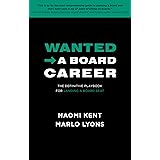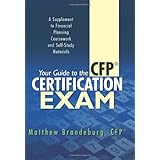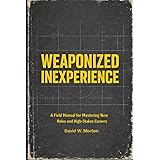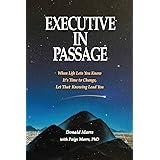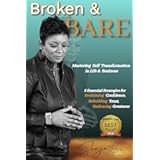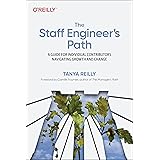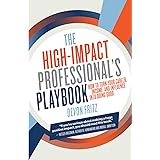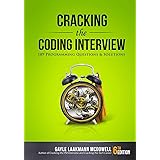In the high-stakes environment of a job interview, every detail contributes to a hiring manager’s perception of your candidacy. Research indicates that subconscious decisions about a candidate are often formed within the first few minutes of an interaction, underscoring the critical importance of a powerful first impression. These initial moments, influenced heavily by non-verbal cues and subtle interactions, can significantly sway the interview’s trajectory. As detailed in the video above by Leila Hormozi, preparing effectively, even at the last minute, can dramatically enhance your prospects for securing that coveted position.
Successful job interview candidates understand that a positive outcome is not solely dependent on qualifications; it also hinges on how well they connect and resonate with their interviewers. This connection is built through a combination of thoughtful preparation and authentic engagement. Implementing strategic yet simple techniques can transform your interview performance, helping you stand out in a competitive talent pool. Let’s delve deeper into these essential strategies, expanding on the insights provided, to help you navigate your next job interview with confidence and poise.
The Power of First Impressions: Mastering Your Job Interview Introduction
The adage “you never get a second chance to make a first impression” holds profound truth, particularly in the context of a job interview. Your initial demeanor and presence create an indelible mental snapshot for the interviewer, influencing their entire evaluation of your capabilities. This critical window of opportunity requires deliberate attention and conscious effort to project the right image. A strong opening sets a positive tone, demonstrating your enthusiasm and professional readiness right from the outset.
Consider the psychological impact of first interactions: humans are wired to make quick judgments about trustworthiness and competence. These rapid assessments, often subconscious, play a significant role in how you are perceived throughout the interview process. Therefore, mastering your introduction involves more than just a firm handshake or a confident greeting; it encompasses your entire initial presentation. Ensuring every aspect of your entry conveys professionalism and eagerness will greatly benefit your overall job interview strategy.
The Silent Language: Why Your Smile Matters
Among the most powerful non-verbal cues you possess is a genuine smile, a simple yet incredibly effective tool for forging immediate rapport. Many individuals, perhaps due to nerves, often neglect this fundamental aspect of communication during a job interview. However, a warm smile communicates openness, confidence, and approachability, making the interviewer feel more at ease and creating a more comfortable atmosphere for dialogue. It signals that you are excited about the opportunity and genuinely happy to be there.
Imagine if you were conducting an interview and the candidate appeared with a neutral or even stern expression; this could inadvertently suggest disinterest or a lack of enthusiasm. Conversely, a sincere smile can instantly lighten the mood and make you more memorable. Actively practicing this before your interview, especially for virtual meetings where your camera turns on, ensures that your first visual impression is positive and engaging. This subtle action often leaves a stronger, more lasting positive feeling than many words could achieve.
Beyond the Resume: Demonstrating Genuine Interest and Curiosity
A job interview is a two-way street; while you are being evaluated, it is equally important for you to assess if the role and company align with your career aspirations. Demonstrating genuine interest moves beyond simply answering questions; it involves actively participating in the conversation and showing curiosity about the company, its mission, and the people within it. This approach signals to the interviewer that you are thoughtful and truly invested in understanding the opportunity, rather than just seeking any job.
Hiring managers appreciate candidates who are not only qualified but also genuinely enthusiastic about contributing to their team. This authentic interest can be a significant differentiator, often more impactful than a perfectly polished resume alone. When you show curiosity, you communicate your potential as a proactive and engaged employee, someone who is eager to learn and grow within the organization. This fosters a deeper connection and enhances your overall impression during the job interview process.
Engaging with Purpose: Asking Insightful Questions
One of the most effective ways to showcase genuine interest during a job interview is by asking thoughtful and insightful questions. This practice demonstrates that you have not only listened attentively but have also considered the implications of the role and the company’s future. Questions should extend beyond what is readily available on the company website, probing into aspects of team dynamics, challenges, growth opportunities, or the interviewer’s own experiences.
Consider asking the interviewer about their journey with the company, what they find most rewarding about their role, or the biggest challenges their team currently faces. For example, “What is your favorite part about working here, and what initially drew you to this organization?” Such inquiries reveal a deeper level of engagement and an inquisitive mind. These types of questions transform the interview from a one-sided interrogation into a dynamic, meaningful conversation, enhancing your chances of job interview success.
Speaking Their Language: Aligning with Company Terminology
Effective communication in a job interview involves more than just clarity; it requires speaking in a way that resonates directly with the interviewer and the organizational culture. This means adopting the specific terminology, jargon, and buzzwords prevalent within the company and the industry for the role you are pursuing. Doing so demonstrates your familiarity with their operational landscape and signals that you can seamlessly integrate into their professional environment without a significant learning curve.
When you align your language with theirs, you implicitly communicate that you are already part of their world. This can significantly reduce the perceived risk of hiring an external candidate, as you appear to be an immediate cultural and professional fit. Furthermore, it showcases your research capabilities and attention to detail, proving that you have invested time in understanding their specific needs. Mastering this linguistic alignment is a powerful technique for excelling in your job interview.
Decoding the Job Description for Interview Success
The job description is an invaluable resource for understanding the specific language and expectations of a role, serving as your primary guide for linguistic alignment. It outlines the key responsibilities, required skills, and often, the preferred terminology used within that function. Analyzing these details thoroughly allows you to integrate their specific vocabulary into your answers, making your responses more relevant and impactful.
For instance, if a sales manager role emphasizes “high-ticket closures” and “client acquisition strategies,” then you should incorporate these exact phrases when discussing your past experiences. Avoid using generic terms if more specific, industry-standard language is provided in the description. By consciously mirroring their terminology, you not only demonstrate your comprehension of the role but also build a subconscious connection with the interviewer, signaling your readiness for the job.
Dress for Success: The Unwritten Rules of Interview Attire
Your appearance communicates volumes before you even utter a single word in a job interview. While workplace dress codes have become increasingly casual in many industries, the standard for an interview remains consistently high. Dressing professionally, and often slightly more formally than the company’s everyday attire, sends a clear message: you take this opportunity seriously and respect the individuals you are meeting. This adherence to professional standards is a non-negotiable aspect of making a strong impression.
Presenting yourself impeccably signals attention to detail, respect for the occasion, and a commitment to professionalism. It differentiates you from candidates who might underestimate the importance of appearance, giving you an immediate advantage. An investment in appropriate attire is an investment in your personal brand and a critical component of your overall interview strategy, ensuring you convey competence and seriousness from the moment you are seen.
Projecting Professionalism in Every Job Interview
The principle that “you can never be overdressed” holds particular weight for a job interview, even if the hiring manager themselves is dressed more casually. Your effort in presenting a polished appearance reflects your commitment and the value you place on the opportunity. It demonstrates that you are willing to go the extra mile, a trait highly valued in any employee. This level of dedication can significantly influence a hiring manager’s perception of your overall work ethic.
Imagine showing up to an interview looking sharp and well-groomed, even if the office environment is relaxed. This conveys a message of respect for the process and the company. Conversely, underdressing can inadvertently suggest a lack of seriousness or attention to detail, potentially undermining your qualifications. Therefore, always choose attire that is clean, well-fitted, and appropriate for a formal business setting, regardless of the perceived company culture, to maximize your chances of job interview success.
The Art of Connection: Thoughtful Compliments and Research
Building a personal connection with your interviewer can transform a standard job interview into a memorable interaction. One highly effective, yet often overlooked, technique for fostering this connection is offering a thoughtful and well-researched compliment. This isn’t about flattery; it’s about demonstrating genuine appreciation and showing that you’ve invested time in understanding the interviewer’s professional journey or contributions. It adds a human element to the professional exchange.
Such compliments, when delivered authentically, can create a positive emotional response, making you more likable and memorable. People naturally gravitate towards those who make them feel valued, and a sincere compliment achieves exactly that. This strategy underscores the importance of pre-interview research, extending beyond just the company to include the individuals you will be meeting, which is a crucial aspect of thorough job interview preparation.
Crafting Personal Connections in Your Interview
To effectively implement the art of complimenting, meticulous research into your interviewer’s background is essential. Utilize platforms like LinkedIn to explore their career path, notable achievements, or published work. You might discover shared interests or professional milestones that provide a natural opening for a compliment. For example, if you notice they recently led a significant project or received an industry award, you could express your admiration for their accomplishment.
A compliment might sound something like, “I was truly impressed by your work on [specific project/initiative] that I read about on LinkedIn; it aligns so well with my interest in [related area].” This approach demonstrates not only your attentiveness but also your genuine curiosity and respect for their expertise. Studies consistently show that individuals respond positively to compliments, even when aware of their strategic intent, making this a powerful tool for building rapport and leaving a lasting positive impression during your job interview.
Getting Interview-Ready: Your Questions, Answered
Why is a good first impression important for a job interview?
Interviewers often form opinions quickly, so a strong first impression sets a positive tone. It helps demonstrate your enthusiasm and professional readiness right from the start.
What simple non-verbal action can help during an interview?
A genuine smile is a powerful non-verbal cue. It communicates openness, confidence, and approachability, making the interviewer feel more at ease.
How can I show I’m truly interested in the job and company?
You can show genuine interest by actively engaging and asking thoughtful, insightful questions. This proves you’ve considered the role and company beyond just answering questions.
Should I use specific words or terms from the company or job description?
Yes, aligning your language with the company’s specific terminology and buzzwords shows you’re familiar with their environment. It helps you appear as an immediate cultural and professional fit.
How should I dress for a job interview?
Always dress professionally, often slightly more formally than the company’s usual attire. This shows you take the opportunity seriously and respect the individuals you are meeting.


